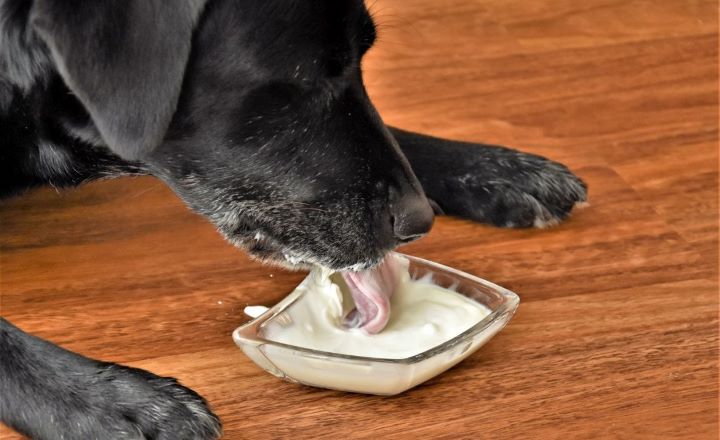Yogurt, with its creamy texture and tangy taste, is a beloved dairy product enjoyed by millions of people around the world. But when your furry friend gazes longingly at your yogurt cup, you might wonder, “Can dogs eat yogurt?” In this blog, we’ll explore the yummy mystery of yogurt for dogs, its potential benefits, and important considerations to keep in mind.
The Basics: Can Dogs Eat Yogurt?
The short answer is yes, dogs can eat yogurt. In fact, many pet owners choose to incorporate yogurt into their dog’s diet because of its potential health benefits. However, like any human food, there are important caveats and guidelines to follow.
Yogurt Benefits for Dogs:
Before we dive into the details, let’s explore some of the potential benefits of yogurt for dogs:
Probiotics:
Yogurt contains live bacteria cultures, such as Lactobacillus and Bifidobacterium, which are beneficial for digestive health. These probiotics can help maintain a healthy balance of gut bacteria and aid in digestion.
Calcium:
Yogurt is a good source of calcium, which is essential for strong bones and teeth. It can be especially beneficial for puppies, pregnant dogs, and lactating females.
Protein:
Yogurt provides an extra source of protein, which is important for muscle development and overall health.
Vitamins and Minerals:
Yogurt contains vitamins like B12 and riboflavin, as well as minerals like phosphorus. These nutrients support various bodily functions.
Cooling Effect:
During hot weather, plain, unsweetened yogurt can be a refreshing and cooling treat for dogs.
Yogurt Dos and Don’ts for Dogs:
Now that we’ve highlighted some of the potential benefits, let’s discuss the dos and don’ts of feeding yogurt to your dog:
Choose Plain and Unsweetened Yogurt:
The best yogurt for dogs is plain, unsweetened yogurt without any added flavors, artificial sweeteners, or sugars. Avoid yogurt with added ingredients like chocolate or xylitol, which can be toxic to dogs.
Introduce Gradually:
If your dog has never had yogurt before, start with a small amount and monitor their reaction. Some dogs may be sensitive to dairy and could experience digestive upset.
Watch for Allergies:
Just like humans, dogs can have food allergies. If you notice any signs of an allergic reaction, such as itching, hives, or digestive issues, discontinue the yogurt and consult your veterinarian.
Moderation Is Key:
While yogurt can be beneficial, it should be given in moderation. Excessive consumption can lead to weight gain and other health issues.
Check with Your Vet:
If your dog has specific dietary or health concerns, it’s a good idea to consult with your veterinarian before adding yogurt to their diet. Your vet can provide tailored guidance.
Probiotic Supplements vs. Yogurt:
If you’re considering yogurt as a source of probiotics for your dog, it’s worth noting that there are probiotic supplements designed specifically for dogs. These supplements provide a controlled and standardized dose of beneficial bacteria and can be a convenient alternative to yogurt. Consult with your veterinarian to determine the best approach for your dog’s digestive health.
Lactose Intolerance:
It’s important to be aware that some dogs, like some humans, may be lactose intolerant. Lactose is the sugar found in milk and dairy products, and dogs with lactose intolerance lack the enzyme needed to digest it. This can lead to digestive upset, including diarrhea and gas, after consuming dairy products. If you suspect your dog is lactose intolerant, it’s best to avoid yogurt and other dairy products.
Conclusion: Can Dogs Eat Yogurt?
In the delightful world of yogurt for dogs, the verdict is that, yes, they can enjoy this dairy treat. Plain, unsweetened yogurt can be a healthy addition to your dog’s diet, offering potential benefits for digestive health, calcium intake, and more. However, it’s crucial to be mindful of the dos and don’ts. Choose the right type of yogurt, introduce it gradually, monitor for allergies, and always maintain moderation. Your dog’s health and well-being are top priorities, and with the right approach, yogurt can be a tasty and nutritious addition to their diet.













